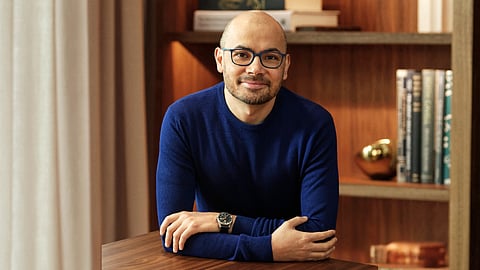
- NEWS
- the EDIT
- COMMENTARY
- BUSINESS
- LIFE
- SHOW
- ACTION
- GLOBAL GOALS
- SNAPS
- DYARYO TIRADA
- MORE

Demis Hassabis, CEO of Google’s DeepMind, has gone from being a chess prodigy to a Nobel laureate in chemistry. The London-born scientist, who began playing chess at age four and became a master at just 13, credited his love for board games as the initial spark for his lifelong pursuit of artificial intelligence (AI).
Hassabis, who recently shared the Nobel Prize in Chemistry with two other scientists, has always been driven by a fascination with how the brain works. This passion led him to develop some of the most advanced AI techniques we see today.
Hassabis’ early career was marked by his expertise in video game design, including co-designing the popular game Theme Park at the age of 19. His intellectual prowess continued to shine as he went on to win the "pentamind" competition, which combines results from chess, Go, Mastermind, Scrabble, and bridge. His diverse achievements in games laid the groundwork for his later focus on AI.
After studying neuroscience at University College London, he co-founded DeepMind in 2010, where he pioneered research into artificial neural networks—systems that mimic the human brain. Google acquired DeepMind in 2014.
In 2016, DeepMind’s AI program, AlphaGo, gained worldwide attention by defeating the world champion of Go, an ancient Chinese board game. The achievement was a testament to the growing potential of AI. But Hassabis wasn’t content with simply winning games—his aim was to broaden the scope of AI’s capabilities.
AlphaZero, an evolved version of AlphaGo, went on to beat the world’s top chess program, Stockfish, and also showed its proficiency in retro video games. These breakthroughs were less about the games themselves and more about the advanced learning techniques that would fuel the modern AI revolution.
A major milestone came in 2018, when Hassabis and his team tackled one of the biggest challenges in molecular biology—protein structure prediction. Proteins are the fundamental building blocks of life, but for over 50 years, accurately predicting their 3D structures was elusive. In a breakthrough with AlphaFold, Hassabis and his team managed to predict these structures with unprecedented accuracy.
AlphaFold's success has since opened doors to revolutionary advances in medicine and drug discovery. As of today, AlphaFold has been cited in over 30,000 scientific papers, with more than 2 million researchers using it in critical work, from enzyme design to vaccine development.
Hassabis' contributions extend beyond science and technology—they have the potential to transform industries and improve lives across the globe. However, as AI continues to evolve, so does the conversation around its risks.
Hassabis, while optimistic about the transformative power of AI, acknowledges the potential dangers it poses if not handled with care. He urges society to engage in a global discussion about the responsible development and use of AI, ensuring its benefits are maximized while minimizing any negative impacts.
As a pioneer at the intersection of AI and biotechnology, Demis Hassabis remains a figure to watch. His Nobel win is just one chapter in his broader vision of AI as a tool to solve some of the world’s most pressing challenges, from health care to sustainability.
His work exemplifies the boundless potential of human ingenuity and the importance of embracing new technologies with caution and foresight.
